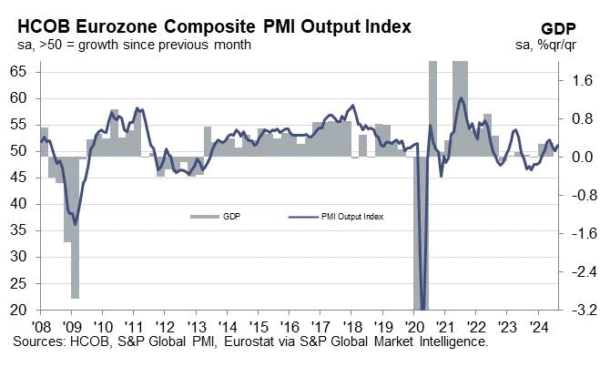Eurozone PMI Manufacturing fell slightly from 45.8 to 45.6 in August, an 8-month low and below expectations of 46.1. In contrast, PMI Services showed a strong performance, rising from 51.9 to 53.3, surpassing the expected 52.2. This divergence led to a modest increase in PMI Composite, which climbed from 50.2 to 51.2, signaling faster expansion.
Cyrus de la Rubia, Chief Economist at Hamburg Commercial Bank, offered a cautious interpretation of the data, noting that the underlying fundamentals might be “shakier than they appear.” He highlighted that the boost in PMI Composite is largely driven by a surge in services activity in France, likely linked to the Olympic Games in Paris. However, de la Rubia expressed doubt that this momentum will persist in the coming months. Meanwhile, Germany’s services sector showed a slowdown in growth, and Eurozone’s manufacturing sector “remains in rapid decline.”
On the inflation front, de la Rubia pointed out that input costs in the services sector, a key focus for ECB, rose at the slowest pace in 40 months. This easing of cost pressures, despite the faster climb in output prices compared to July, strengthens the case for an interest rate cut at ECB’s upcoming September meeting.

